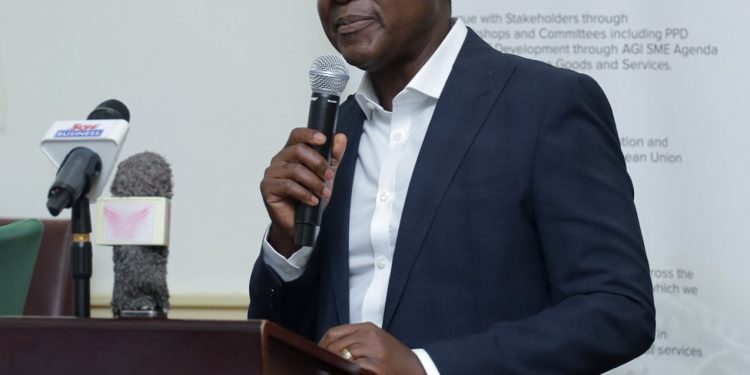RelatedPosts
Textiles and Garments: DBG Dep. CEO Outlines Three-Pronged Strategy to Tackle Sector’s Challenges
The Deputy Chief Executive Officer of Development Bank Ghana (DBG), Michael Mensah-Baah, has underscored the Bank’s strong commitment to revitalising Ghana’s garments and textiles industry, describing it as a critical sub-sector with high employment potential.
Speaking at a policy dialogue forum jointly organised by DBG and the Association of Ghana Industries (AGI), Mr Mensah-Baah said the Bank is adopting a step-by-step approach to resolving persistent challenges confronting the sub-sector.
“DBG was set up three and a half years ago with the mandate to support private sector businesses in key areas of the economy. Manufacturing is one of our focus sectors, and within that, garments and textiles stand out as a sub-sector with the capacity to create significant employment if given the right support,” he stated.
The forum brought together key stakeholders to examine bottlenecks, identify opportunities, and formulate policy recommendations to accelerate growth in the textile and garment industry. According to Mr Mensah-Baah, DBG is deploying a three-pronged strategy to tackle the sector’s challenges.
The first, he said, involves strengthening the capacity of financial institutions to better understand and assess garment and textile-related businesses.
“Our partner financial institutions do not fully understand how to assess or de-risk transactions in the sector. We are therefore working with KfW Development Partners to train and upskill them so they can provide tailored funding support,” he explained.
The second strategy, he noted, is to support businesses within the sub-sector to become investor-ready by helping them establish proper documentation and structures that enable them to access credit.
“Many SMEs in the textile and garment space lack basic documentation and governance frameworks. Without these, banks cannot lend to them. We will identify such businesses and provide training to prepare them for investment,” he said.
On the third front, DBG is engaging policymakers to shape policy reforms that address sector-specific challenges.
“We are not waiting. We will work with policymakers to incorporate the sector’s concerns into upcoming policy initiatives and ensure that they are aligned with the practical realities businesses are facing,” he emphasised.
Mensah-Baah said DBG is confident that the integration of these three interventions—policy engagement, technical support for businesses, and capacity building for financial institutions—will yield measurable results within a year.
“We expect to see real impact in terms of job creation, foreign exchange earnings, and import substitution,” he said.
The forum also forms part of DBG’s wider effort to support SMEs and Participating Financial Institutions (PFIs) within the textile and garment value chain through capacity building and technical assistance.
Both DBG and AGI announced that the dialogue will culminate in the publication of a policy brief featuring draft regulations, enforcement mechanisms, and investment incentives. DBG plans to embed the recommendations into an industry action plan that combines long-term financing with hands-on technical support.








